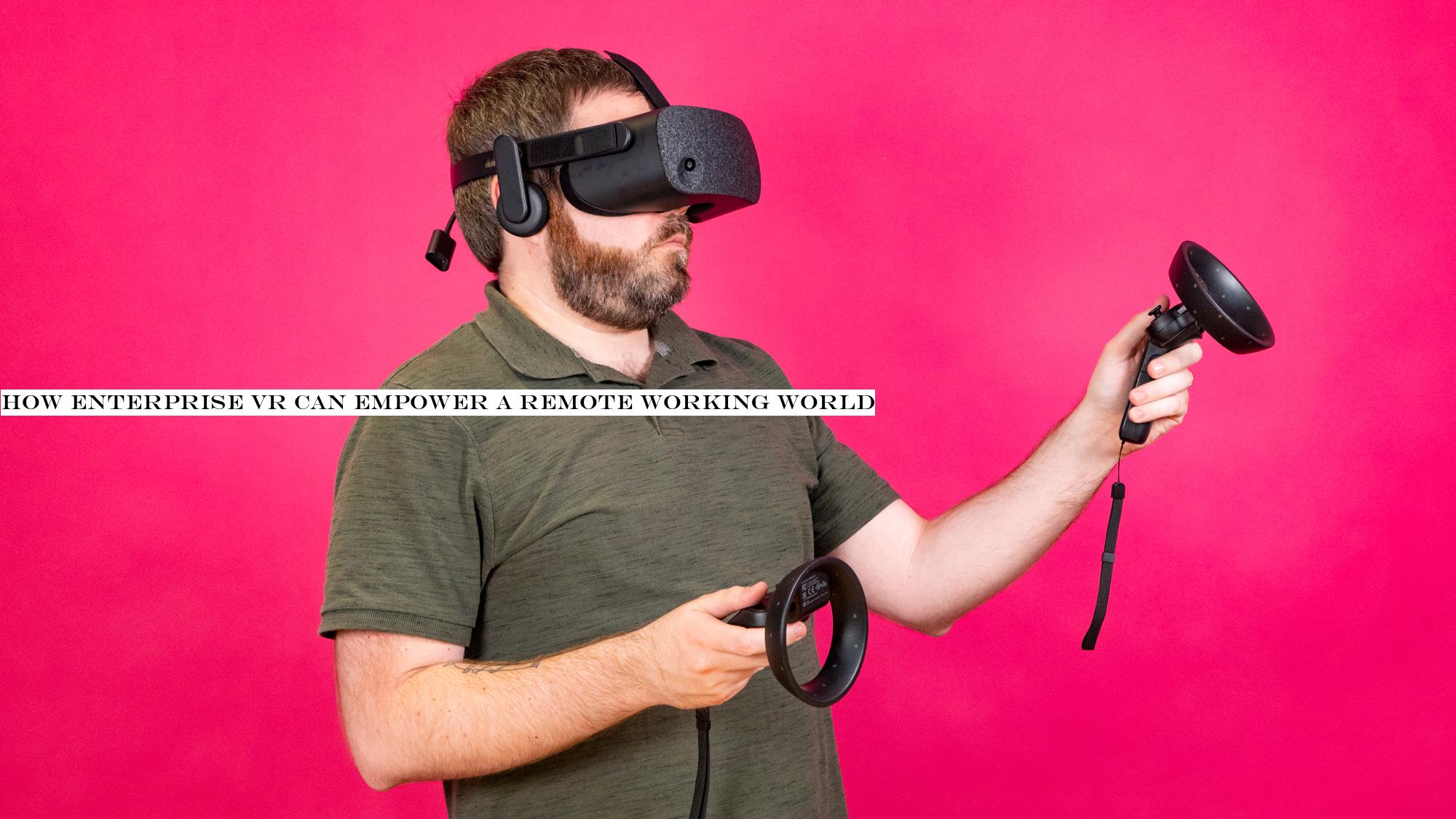
With an ever-growing gig economy and pressure to achieve carbon neutrality, businesses have had to adapt remote working arrangements to keep pace with behavioural change in the workplace.The latest IWG Global Workspace Survey reveals that 73% of people in the UK consider flexible working to be the new normal, with 68% of UK businesses reported to have a flexible workspace policy.
In the wake of the Covid-19 global pandemic, the disparate workforce is growing rapidly in size.
Remote-working, virtual training and digital collaboration is now at the forefront of business leaders' minds.Virtual reality (VR) is one of the tools that could help to empower a remote-working culture.
With the technology developing at a rapid pace and companies beginning to explore VRs transformative potential, this futuristic technology is making its way into the mainstream.Training without limitsIn a world of increased remote working and vastly reduced business travel, VR offers a vital way of providing interactive, collaborative training.
As well as developing workers technical skills, VR also has the scope to improve soft skills, such as teamwork and communication, through real-time collaborative training.
Some of the key benefits of VR training include:Enhanced engagement: As VR technology was originally developed for the video game industry, its central aim is to engage, and it is inherently immersive.
Gamification elements can be added to enterprise VR platforms; the introduction of a competitive element can increase employee engagement in the training and improve knowledge retention.Collaboration: Multiple employees can be in the same virtual space together from different locations, enabling them to feel socially and emotionally engaged in the training, increasing satisfaction and motivation.
Developing effective communication between co-workers is becoming even more important as we move towards a remote workforce.Data-led intelligence: VRs data capture capabilities allow for objective and subjective evaluation that would not be possible using standard methods, tracking things such as user actions and comments made in the training environment.
This allows for learner-specific personalisation of training and provides individuals and organisations with detailed feedback.
This, in turn, can help companies to review the effectiveness and ROI of their training programmes.Improved results: Research by the University of Cambridges Cyber-Human Lab has shown that effective VR training can result in faster task completion when compared with standard training.
And improved training could have a positive impact on workplace retention, too: research indicates that workers that enjoy their training are more likely to remain with a company.Making the virtual a realityExciting new enterprise VR developments are currently in production or pilot, including advanced learner-specific personalisation and AI avatars that can assist with real-time training.And as enterprise VR software becomes more sophisticated, it is also becoming increasingly accessible.
The cost of hardware is falling, and content is becoming easier to create and customise, opening enterprise VR up to smaller companies without in-house development teams.Additionally, the emergence of 5G will unlock exciting possibilities for enterprise VR applications.
With the additional processing power 5G will provide, training experiences can be customised for the trainee based on their actions or reactions in real-time.
Mass adoption of VR for corporate training is no longer a distant dream, but a very close reality.A virtual future on the horizonAt a time when virtual collaboration and digital connection are rapidly becoming mainstream ways of co-working, VR will be one of the tech tools that takes centre stage.
Now is the moment for companies to start exploring the potential of this technology to increase employee engagement, productivity and retention.With new features in production and the technology becoming more accessible, the tipping point for the mass adoption of VR training is on the horizon.
Research suggests that almost three-quarters of small to midsize businesses will be experimenting with immersive technology by 2022.
Looking back, we may see 2020 as marking a major shift: a forced trial of mass remote working.Tom Symonds is CEO of Immerse

 19
19







